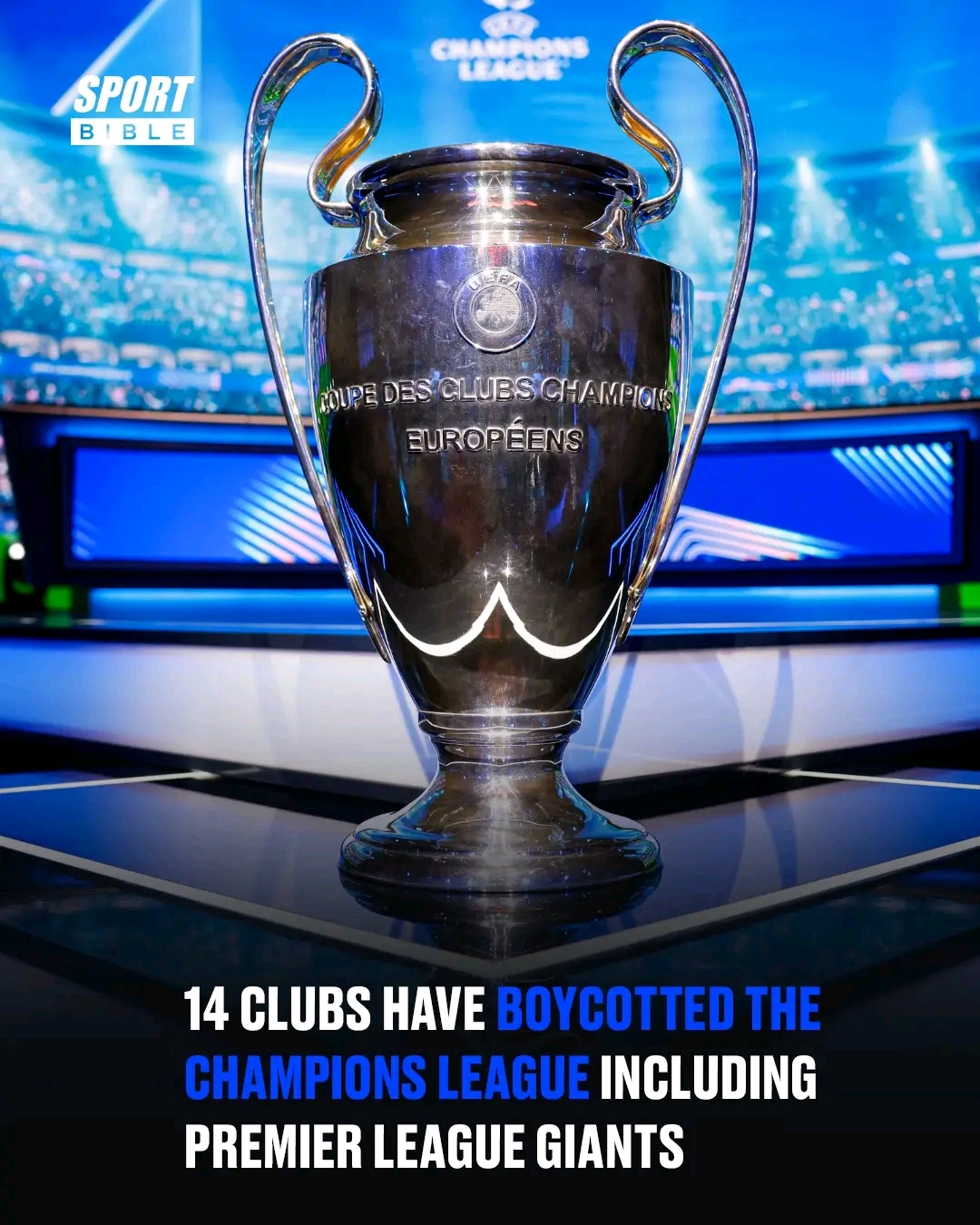The clubs have BOYCOTTED the competition…

Football is a game that gives us joy, tears, passion, and memories. But it is also a game shaped by politics, pride, fear, and decisions that sometimes change history forever. When people talk about the Champions League today, they see glamour, money, lights, and the best players in the world fighting for glory. But the competition was not always like this. Back in the 1950s and 1960s, the European Cup – which later became the Champions League – was a strange new idea. Some football powers were scared of it, some were not ready for it, and others rejected it for reasons that had nothing to do with football. Fourteen clubs across history, including giants from England and Scotland, boycotted the European Cup. Their absence shaped the competition’s story in ways nobody could have predicted.
To understand why, we must go back to 1955. Europe was still healing from the wounds of the Second World War. Football was a way for people to smile again, to feel alive. A group of French journalists and football officials wanted to bring together the champions of different European leagues in one tournament, to see who was truly the best. They called it the European Cup. Sixteen league winners were invited. It sounded exciting, a new chapter in football history. But not everyone agreed.
The English Football Association, powerful and stubborn, did not like the idea. England, at that time, believed its league was the best in the world. They didn’t see why their champions should waste time playing against “foreign” teams. In fact, England had only joined FIFA after the Second World War and had not even played in a World Cup until 1950. So when Chelsea, champions of England, were invited to the first European Cup, the FA told them no. Imagine that – Chelsea, with a chance to make history, turned down the invitation because their own football bosses were against it. That single decision meant that England missed out on the birth of something magical. Instead, it was Hibernian of Scotland, who had not even won the league but were chosen because they were known across Europe and had floodlights, who became the first British club to play in the European Cup. They reached the semi-finals, showing that Britain had the talent to compete. But Chelsea’s absence will forever be remembered as a “what if” moment.
Scotland also had its own boycott story. In 1955, Aberdeen were the champions of Scotland and had the right to play in Europe. But their FA followed England’s lead and forced them to withdraw. It was another political decision, not a sporting one. Instead, Hibernian stepped in again. The SFA chose them partly because of their reputation abroad. They had played tours in South America and Europe and were more famous internationally. In that moment, Hibs became pioneers, carrying the flag that Aberdeen and Chelsea were not allowed to carry.
Manchester United also felt the cold hand of boycott. After the Munich air disaster in 1958, when eight of their players tragically died, UEFA wanted to honour the club by giving them a special invitation to play in the 1958/59 European Cup. It was a gesture of respect, a way to help rebuild the team. But the FA once again stepped in and blocked it. They told Manchester United they could not play. Imagine the heartbreak – a club in mourning, offered a chance of healing and international support, but denied by their own football association. That decision still haunts English football history.
Not all boycotts were about pride or stubbornness. Some were about politics. In 1961, Romanian side CCA București had been drawn against Spartak Hradec Králové from Czechoslovakia. But the Romanian government forced their team to withdraw. Just a year earlier, Romania had lost 5-0 on aggregate to Czechoslovakia in the European Nations’ Cup, and the government feared more embarrassment. They preferred to avoid defeat by not playing at all. It was politics controlling football, a story repeated many times in the Eastern Bloc during the Cold War.
The most dramatic political boycott came in 1969. Six clubs from Eastern Europe all withdrew from the European Cup after UEFA drew teams from countries involved in the Soviet invasion of Czechoslovakia together. Bulgaria’s Levski Sofia refused to play Hungary’s Ferencváros. Poland’s Ruch Chorzów would not face Dynamo Kyiv of the USSR. Czechoslovakia’s Red Star Belgrade and East Germany’s Carl Zeiss Jena also pulled out. These boycotts were not about football. They were about armies, tanks, and politics spilling onto the pitch. The European Cup became a victim of the Cold War.
In Albania, football was under strict government control. In 1972, KF Vllaznia won the Albanian championship and earned the right to play in the European Cup. But they could not travel without permission from their government. That permission never came. The Albanian leaders did not trust the outside world and blocked their club from competing. Vllaznia were effectively banned from making history. Their players, who had worked all season to win the title, had to watch others play on the biggest stage. It was one of the saddest boycotts of all.
Northern Ireland also had its share of boycotts. In 1970, Glenavon withdrew from the European Cup because of money problems and travel restrictions. They had been denied visas for away matches and would have had to play at neutral venues. The cost was too high. Two years later, Glentoran qualified but could not take part because of the violent political troubles in Northern Ireland at the time. The government decided it was too dangerous. For over a decade, Northern Irish clubs even moved to the League of Ireland, though they occasionally played in European competitions through that route. These stories show how football was not only about talent but about survival.
Looking back now, it feels strange to think that clubs once turned down the chance to play in Europe. Today, the Champions League is the dream of every club, the source of fame and fortune. But in those early years, it was not guaranteed. Chelsea’s forced withdrawal meant English football arrived late to the party. Manchester United’s rejection meant a broken chance of honour. Aberdeen’s withdrawal meant lost history for Scotland. Eastern Europe’s boycotts showed how football could be torn apart by politics. And clubs from Romania, Albania, and Northern Ireland proved that fear, cost, and violence could rob players of their dreams.
Yet, from all these boycotts came lessons. Football learned that the game was bigger than politics, bigger than fear. Over time, clubs fought harder for the right to play. Fans demanded it. And slowly, the Champions League grew into the giant we know today. But those 14 clubs who once said no, whether by choice or by force, will always be remembered. They are part of the story, the hidden chapters of the world’s greatest football competition.
Football is full of “what ifs.” What if Chelsea had played in 1955? What if Manchester United had entered in 1958 and honoured their fallen heroes? What if Aberdeen had gone instead of Hibernian? What if Eastern Europe had let their clubs face each other despite politics? Nobody knows the answers. But one thing is clear: the Champions League might look different today if those boycotts had never happened.
And that is the beauty and the sadness of football. Sometimes it is about the goals. Sometimes it is about the games that were never played















